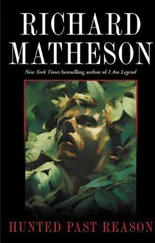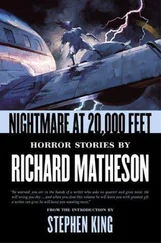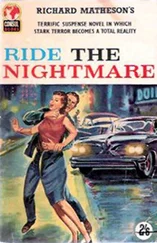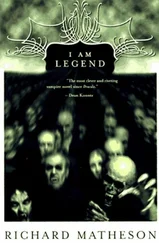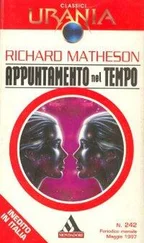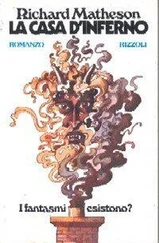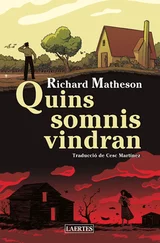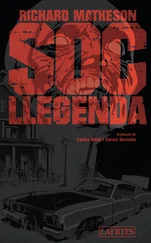But he didn’t try to convince himself. He stood there worriedly, staring at the crest of the slope where Matthew Coles had disappeared.
Finally, he exhaled a heavy breath and groaned because he knew what he had to do. “Oh . . . damn! ” he muttered to himself and started in quick, angry strides for his horse.
“I’ll be back as soon as I can,” he told Lew. “Tell Merv and Joe I . . .” Another disgusted hiss of breath. “Tell ’em I have to go into the damn town again.”
“Take it easy, boss,” Lew said and Benton grunted a reply as he started up the slope.
As he swung into the saddle, he ran his right hand across his brow and slung away the sweat drops on his fingers. Then he nudged his spurs into the horse’s flanks and felt the animal charge up the incline beneath him.
What do I do first? The thought plagued him as he galloped for the ranch. Should he try Robby first or his father, Louisa or her aunt or her mother, the Reverend Bond or maybe even the sheriff? He didn’t know. All he knew was that things were too damn complicated. Some stupid little girl makes up a story about him and, in two days, everybody expects him to defend his life.
It was hard not to let them have their way. Certainly he was fed up enough just to let it happen the way they wanted. But then he knew again that killing Robby wasn’t the answer. Robby wasn’t any villain to be killed; he was only a pawn.
Why did I leave the Rangers? He was asking himself the question again as he rode up to the house and jumped off his horse.
Julia was in the doorway before he’d even tied up the panting mount.
“John,” she said breathlessly, staring at his mud-spattered clothes.
“It’s all right,” he said quickly as she ran to him.
“ Oh. ” She swallowed and caught his hand. “Mud. I thought—” She swallowed again and didn’t finish. “What happened, John?” she asked instead.
He told her briefly as he went into the house, pulling off his mud-caked shirt and starting to wash up at the pump.
“What are you going to do?” she asked, apprenhensively.
“Go into town,” he said. “No, I’m not takin’ a gun with me,” he added quickly, seeing the look in her eyes. “I’ll try talkin’ reason to them again.” He dashed water in his face and washed off the soap. “There must be one of them that’ll listen to reason. I sure can’t see shootin’ that kid over nothin’ at all.”
“I want to go with you,” Julia said, suddenly.
“No, I’ll get there faster by myself,” he told her.
“John, I want to go,” she said again and this time it wasn’t just a request. He looked over at her as he lathered his muddy arms.
“Honey, who’s goin’ to feed the boys? They gotta have their chuck, you know.”
“They can manage by themselves one day,” she said. “I’ll leave the food on the table.”
“Julia, there isn’t that much time.”
“Then I’ll leave a note telling them where everything is,” she argued. “If there isn’t much time, it’s even more important that I go with you. There may be a lot of people to see and two of us can do more than one. And—besides—the women are more likely to listen to me than you.” She spoke quickly, submerging the rise of dread in a tide of rapid planning.
Benton hesitated a moment longer, looking at her intent face. Then he turned away with a shrug. “All right,” he said, wearily. As she sat down to write the note, she heard him muttering to himself about how the ranch was going to go to hell because of all this lost time.
“We’ll tie Socks behind the buckboard,” she said, looking up from the note, “then, when we get into town, we can separate and get more done that way.”
“Well, there isn’t much time,” Benton said, looking at the clock, “it’s almost eleven now. It’ll take till quarter of twelve to reach town even if we push it.”
“He didn’t set a time, did he?” she asked, her voice suddenly faint.
“Three,” he said.
“This afternoon?” She knew even as she said it that it had to be that afternoon. “Oh, dear God.”
Benton grunted, then turned from the pump. “I’m goin’ to change clothes now,” he said. “Will you get Socks and the dark mare outta the barn? I’ll put the other one away before we leave.”
He headed for the bedroom.
“John,” she said suddenly when he was almost out of the kitchen. He looked back over his shoulder.
“John . . . promise me that . . .” she swallowed, “. . . that whatever happens you won’t . . .” She couldn’t finish.
They looked at each other a long moment and it seemed as if the great conflict in their life and marriage were a wall being erected between them again.
Then John said, “There’s no time to talk now,” and left her staring at the place where he’d been standing. She listened to the sound of her pencil hitting the floor and rolling across the boards.
Chapter Twenty-two
The two women sat in the front room. They both had yarn and needles in their laps but only one of them was knitting; that was Agatha Winston. Her sister sat without moving, her limpid eyes unfocused, on her face a look of disconcerted reflection.
Miss Winston looked up. “You’ll never finish the shawl like that,” she said, curtly.
Elizabeth Harper’s hands twitched in her lap and her gaze lifted for a moment to the carved features of her sister.
“I can’t,” she said then, with an unhappy sigh.
Agatha Winston’s thin lips pressed a grimace into her face and she went back to her knitting without another word.
In the hall, the clock chimed a hollow stroke and then eleven more. Elizabeth Harper sat listening, her hands clasped tightly in her lap, her eyes on the calmly moving fingers of Agatha Winston. Noon, she thought, it’s noon.
“How can you be so—?” she began to say and then was halted by the coldness in her sister’s eyes.
Miss Winston put down her work. “What is happening,” she said, “is beyond our control. It had to be this way. John Benton made it so.” She picked up her work again. “And there’s no point in our dwelling on it,” she said.
Elizabeth Harper stirred restlessly on the chair. “But that poor boy,” she murmured. “What will happen to him?”
“He is not a boy, Elizabeth.”
“But he’s not . . .” Mrs. Harper looked upset. “Oh . . . how can he hope to do anything against that . . . that awful man?”
Miss Winston breathed in deeply. “It is what he has to do,” was all she said. “Let’s not talk about it.”
Elizabeth Harper looked back at her hands, feeling her body tighten as she thought about Robby Coles going against a man who had lived by violence for—how many years? She bit her lip. It was terrible, it was a terrible thing. If only her dear husband were alive; he’d have found a way to avoid violence. Indeed, he’d have raised Louisa so strictly that this terrible thing would never have happened in the first place. She’d been unable to control the girl since Mr. Harper died. Oh, why was he dead, why?
She brushed away an unexpected tear, looking up guiltily to see if Agatha had seen; but Miss Winston was absorbed in knitting.
Three o’clock, Mrs. Harper thought. Less than three hours now. It was terrible, terrible.
“You’re . . . certain he said—?” she started.
“What?” Agatha Winston looked up irritably.
Elizabeth Harper swallowed. “You’re . . . sure he said three o’clock?”
“That is what he said,” Miss Winston answered, looking back to her work. She’d met Matthew Coles that morning on the way to her shop and he’d told her that Robby was going to meet John Benton in the square at three o’clock that afternoon. After she’d heard that, she’d gone immediately to her sister’s house to see personally that Louisa remained in the house all day. Naturally, she’d have to leave the shop closed all day too.
Читать дальше


